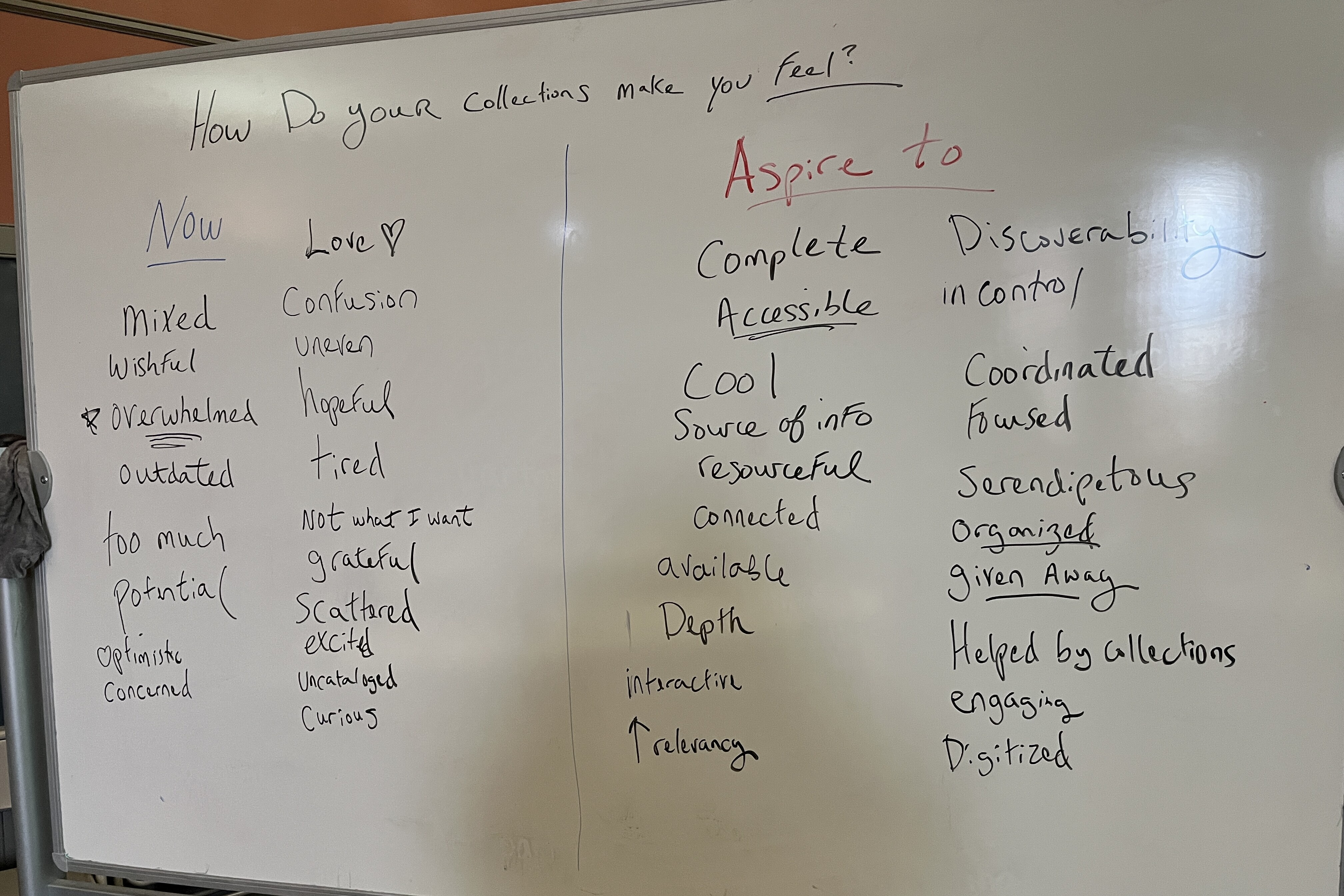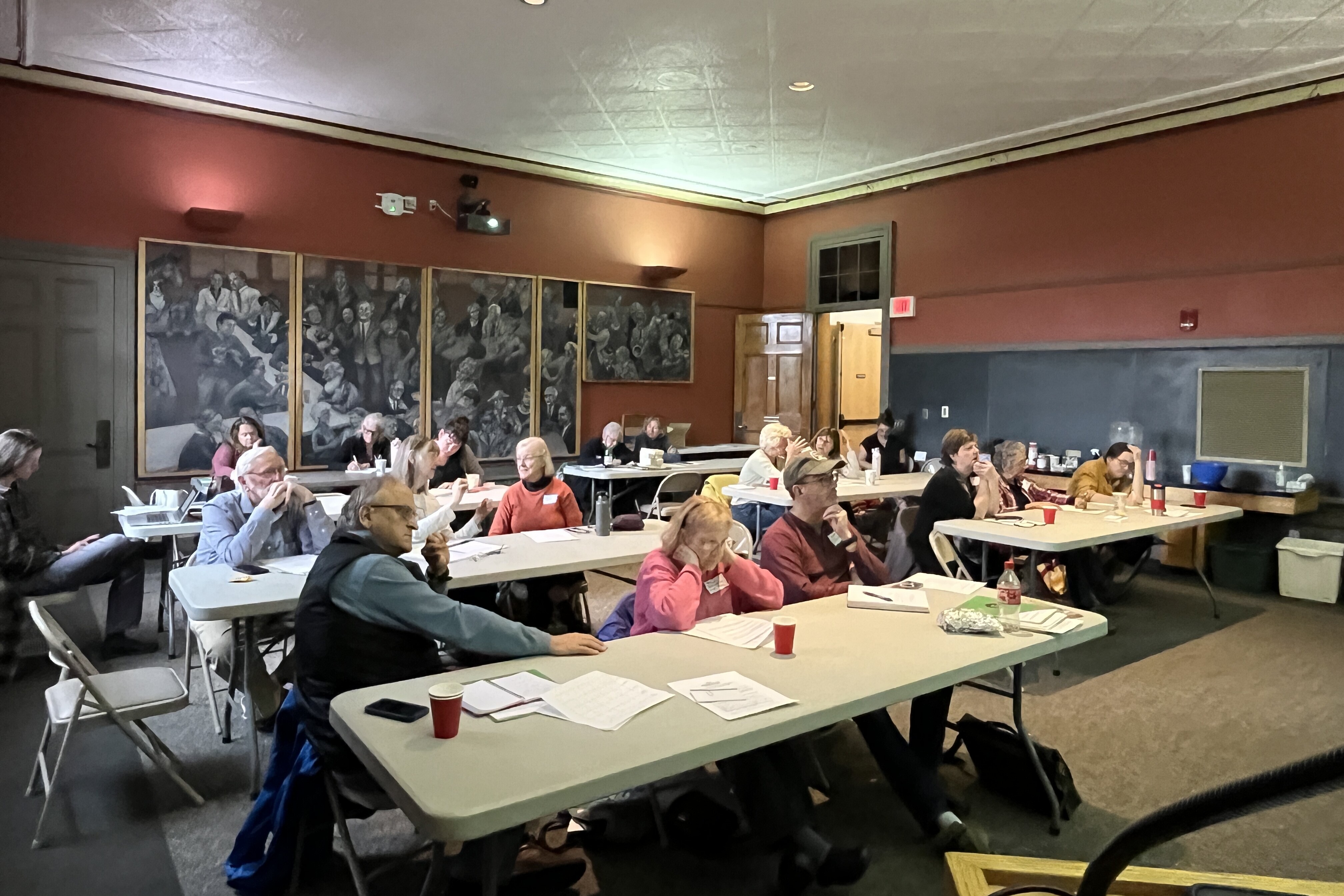Revitalizing Collections at your Local Historical Society

My first day of work at the Vermont Historical Society as Program Coordinator for the Activating 21st Century Local History Training Program coincided with two workshops held at the Vermont History Center in Barre. Folks from all over the state came together to learn about strategic communications and collections management for small museums and historical societies. It was an energizing introduction to the passionate people behind the stewardship of Vermont’s history.
Since then, my first month at VHS has flown by as I have immersed myself in learning about what makes our local historical societies tick. I’ve had opportunities to help with a collection inventory and to delve into research for our Online Resource Center, which will serve volunteers and staff of small museums and historical societies. I continue to discuss best practices with our advisory committee, made up of experts from around Vermont. One thing that resonates with me is that people are feeling overwhelmed by their collections.
Think about the most powerful object in your museum or local historical society’s collection. What makes it special? Most likely, your answer takes the form of a story. Maybe it was owned by a notable individual from your town, or it was in the room when something special happened. Objects can act as portals to the past, transporting us through time and space. The stories our collections tell are what makes them worth all the effort to steward.
Now, turn to the rest of your collection. Are there any objects that don’t feel relevant? What about pieces that aren’t in good shape? Do you know who and where they came from? Do you feel weighed down by the number of things you need to make space for? If there is anything in your collection that isn’t helping you tell the story your organization is there to tell, it’s time to think critically about how to make your collections work with you instead of against you.
If any of these questions strike a chord, you may be a good fit for our Activating 21st Century Local History Training Program. Our inaugural cohort of local historical societies will apply the Active Collections framework to their collections management procedures and policies. Participants will tackle projects tailored to their organization’s needs and leave equipped to better tell the stories of their community.
Active Collections is an approach to museum work that believes all objects in a collection must advance the mission of the organization or they must go. Museums all over the world have acquired objects at an unsustainable pace and are facing the problem of how to protect and preserve things within the limits of their money, space, and staff time. The Active Collections framework looks to revitalize collections management and prioritize quality over quantity.
I strongly encourage local historical society and museum volunteers and staff alike to participate. If you’re involved in caring for the objects that tell the story of your community, this program is for you. Apply by November 15th, 2024, to be considered for our first cohort, which will begin meeting in January 2025.
Please contact me with any questions at program.coordinator@vermonthistory.org. I look forward to hearing from you!
- Hannah Kirkpatrick, Program Coordinator
